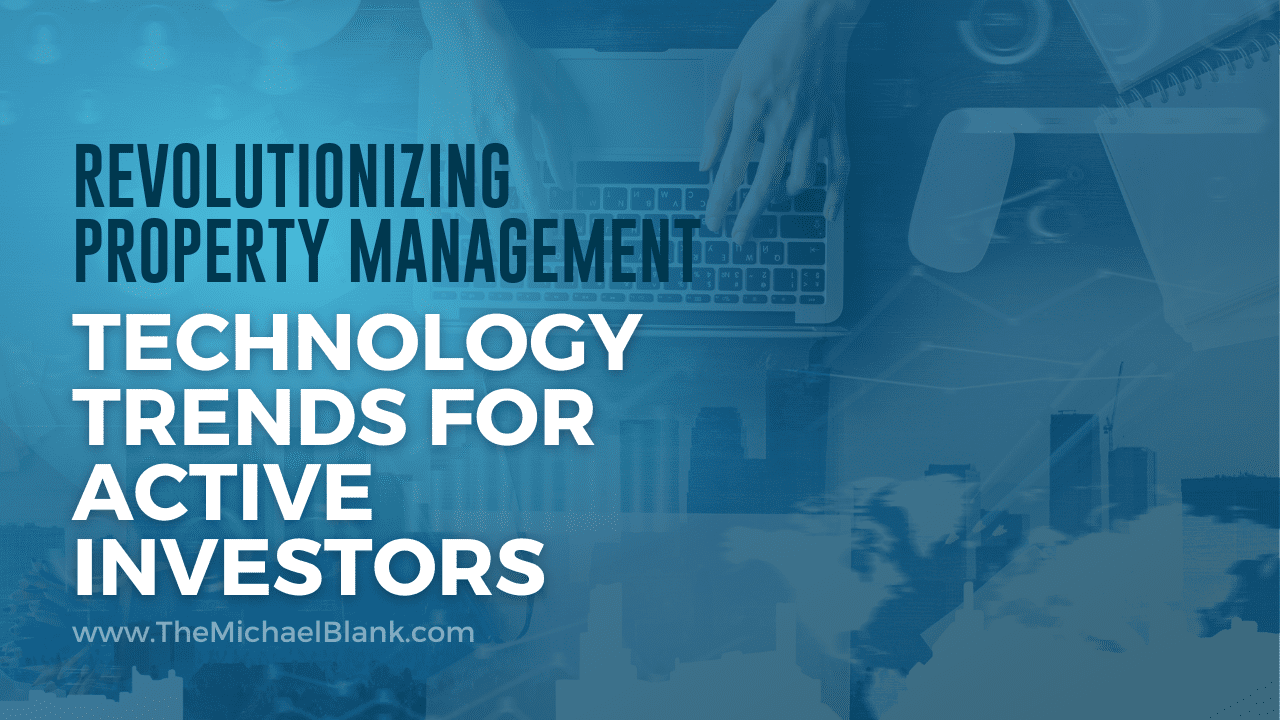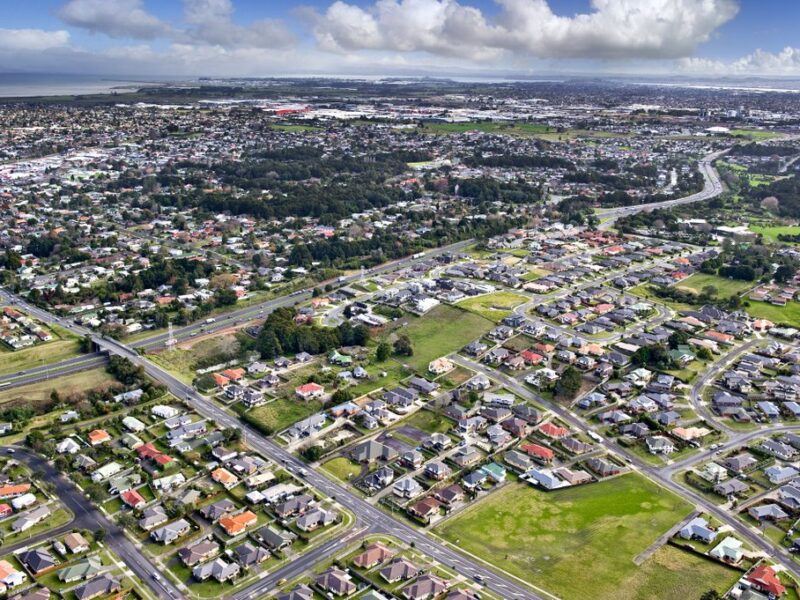Property management has traditionally been a complex and time-consuming task, involving multiple processes and handling various stakeholders. However, with the advancements in technology, the landscape of property management is rapidly changing. Tech tools are revolutionizing property management by streamlining operations and enhancing tenant experiences. From automated leasing processes to smart building technologies, these tools are helping property managers save time, reduce costs, and provide a better overall experience for tenants.
One of the key impacts of tech tools in property management is the automation of routine tasks. Property managers can now easily manage lease agreements, collect rent payments, and communicate with tenants through integrated platforms. Additionally, technologies such as IoT devices and predictive maintenance software help property managers proactively address maintenance issues before they become costly problems. These advancements not only streamline operations but also improve tenant satisfaction and retention. In the next section, we will discuss some key takeaways on how tech tools are transforming property management practices.
What you should know
1. Tech tools like property management software and IoT devices are revolutionizing property management by streamlining operations and providing real-time data to property managers.
2. Property management companies are utilizing mobile apps and online platforms to enhance tenant experiences, offering virtual tours, online rent payments, and instant communication.
3. Automation tools are helping property managers save time and money by automating tasks like maintenance requests, rent collection, and lease renewals.
4. Data analytics software is allowing property managers to make informed decisions by tracking trends in tenant behavior, maintenance costs, and rental rates.
5. By embracing technology, property managers can improve efficiency, tenant satisfaction, and overall profitability in today’s competitive real estate market.
How are tech tools revolutionizing property management by streamlining operations and enhancing tenant experiences?
Tech tools are revolutionizing property management by providing innovative solutions that streamline operations and enhance tenant experiences. One key way these tools are transforming the industry is through automation. Property management software can automate tasks such as rent collection, maintenance requests, and lease renewals, saving time and reducing human error. Additionally, tools like virtual tours and online rental applications make the leasing process more efficient and convenient for both property managers and tenants.
Automation in Property Management
Automation plays a crucial role in streamlining property management operations. With the help of tools like property management software, tasks such as rent collection, maintenance scheduling, and communication with tenants can be automated. This not only saves time for property managers but also ensures that processes are carried out efficiently and accurately. By automating repetitive tasks, property managers can focus on more strategic aspects of their job, ultimately improving overall productivity and tenant satisfaction.
In addition to operational tasks, automation can also enhance the tenant experience. For example, automated communication tools can send timely reminders about rent payments or upcoming maintenance appointments, keeping tenants informed and engaged. This level of communication can help build stronger relationships with tenants and improve overall satisfaction with the property management company.
Another benefit of automation in property management is the ability to track and analyze data more effectively. By using tools that collect and analyze data on tenant preferences, maintenance requests, and leasing trends, property managers can make more informed decisions that benefit both tenants and property owners. This data-driven approach can lead to more personalized services for tenants and improved operational efficiency for property managers.
Enhancing Tenant Experiences with Virtual Tools
Virtual tools are also revolutionizing property management by enhancing tenant experiences. Virtual tours, for example, allow potential tenants to view properties remotely, saving time and making the leasing process more convenient. By offering virtual tours, property managers can attract a wider pool of applicants and fill vacancies more quickly. Additionally, virtual tools like online rental applications streamline the leasing process, making it easier for tenants to apply for a property and for property managers to screen applicants efficiently.
In addition to virtual tours, tools like online portals and mobile apps are improving tenant experiences by providing easy access to important information and services. Tenants can pay rent online, submit maintenance requests, and communicate with property managers through these platforms, making it more convenient to interact with their property management company. Should tenants wish to change property management company, these digital solutions also facilitate a smoother transition process, ensuring minimal disruptions and hassle. By offering these digital solutions, property managers can enhance tenant satisfaction and loyalty, ultimately leading to higher retention rates and a positive reputation in the market.
Overall, tech tools are revolutionizing property management by streamlining operations and enhancing tenant experiences. From automation to virtual tools, these innovations are changing the way property managers operate and interact with tenants, ultimately leading to more efficient processes and improved satisfaction for all parties involved. By embracing these technologies, property managers can stay ahead of the competition and provide a higher level of service to their tenants.
1. How are tech tools revolutionizing property management?
Tech tools are revolutionizing property management by streamlining operations and enhancing tenant experiences. These tools automate tasks such as rent collection, maintenance requests, and lease renewals, saving property managers time and improving efficiency. Additionally, tech tools provide tenants with convenient ways to communicate with property managers, access important information, and make payments online, leading to better overall tenant satisfaction.
2. What are some examples of tech tools being used in property management?
Some examples of tech tools being used in property management include property management software, which helps managers organize and track important information such as leases, maintenance requests, and financial data. Additionally, smart home technology, such as keyless entry systems and smart thermostats, are being used to enhance tenant experiences and improve property security. Virtual tours and online leasing platforms are also becoming more popular, allowing potential tenants to view properties remotely and sign leases digitally.
3. How do tech tools help streamline operations for property managers?
Tech tools help streamline operations for property managers by automating repetitive tasks, such as rent collection and maintenance requests, which frees up time for managers to focus on more strategic initiatives. These tools also provide real-time data and analytics, allowing managers to make informed decisions and quickly address any issues that may arise. Overall, tech tools help improve efficiency, reduce costs, and increase productivity for property management companies.
4. Are there any challenges associated with implementing tech tools in property management?
While tech tools offer many benefits for property management companies, there are some challenges associated with implementing these tools. One common challenge is the initial cost of purchasing and implementing the technology, which can be a barrier for smaller property management companies. Additionally, some property managers may face resistance from tenants who are not comfortable with using new technology or prefer traditional methods of communication. It is important for property managers to provide training and support to ensure a smooth transition to using tech tools.
5. How do tech tools enhance tenant experiences in property management?
Tech tools enhance tenant experiences in property management by providing convenient ways for tenants to communicate with property managers, access important information, and make payments online. For example, tenants can submit maintenance requests through an online portal, receive real-time updates on the status of their requests, and easily schedule appointments with maintenance staff. Additionally, smart home technology allows tenants to control their home environment remotely, such as adjusting the thermostat or locking/unlocking doors, leading to a more comfortable and secure living experience.
6. What are the benefits of using property management software?
Property management software offers many benefits for property managers, including the ability to organize and track important information such as leases, maintenance requests, and financial data in one centralized system. This helps managers stay organized, reduce errors, and improve efficiency. Additionally, property management software often includes features such as automated rent collection, online lease signing, and tenant portals, which enhance tenant experiences and streamline operations for property managers.
7. How do virtual tours and online leasing platforms benefit property managers and tenants?
Virtual tours and online leasing platforms benefit property managers by allowing them to showcase properties to potential tenants remotely, saving time and resources that would have been spent on in-person tours. This can help attract more tenants and fill vacancies faster. For tenants, virtual tours and online leasing platforms provide a convenient way to view properties, compare options, and sign leases digitally from anywhere, making the leasing process more efficient and accessible.
8. How can property managers ensure a smooth transition to using tech tools?
Property managers can ensure a smooth transition to using tech tools by providing training and support to both staff and tenants. It is important to communicate the benefits of the technology and address any concerns or questions that may arise. Property managers should also be prepared to make adjustments to their processes and workflows to fully leverage the capabilities of the tech tools. By investing time and resources into proper training and support, property managers can maximize the benefits of using tech tools in their operations.
9. What are some best practices for implementing tech tools in property management?
Some best practices for implementing tech tools in property management include conducting thorough research to identify the right tools for your specific needs, setting clear goals and objectives for using the technology, and providing adequate training and support to staff and tenants. It is also important to regularly evaluate the performance of the tech tools and make adjustments as needed to ensure they are meeting the desired outcomes. By following these best practices, property managers can successfully integrate tech tools into their operations and enhance the overall tenant experience.
10. How do smart home technologies improve property security and tenant safety?
Smart home technologies, such as keyless entry systems and security cameras, improve property security and tenant safety by providing real-time monitoring and control of access to the property. For example, property managers can remotely lock and unlock doors, monitor security cameras, and receive alerts for suspicious activity, enhancing overall property security. Additionally, smart home technologies can help tenants feel safer and more secure in their homes by providing features such as motion sensors, smoke detectors, and emergency alerts that can quickly notify authorities in case of an emergency.


